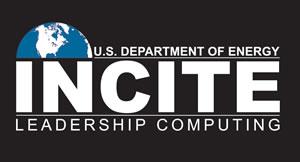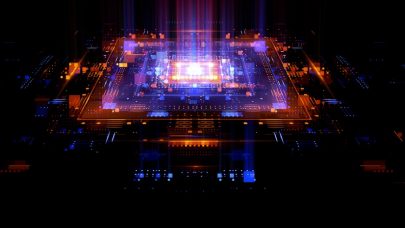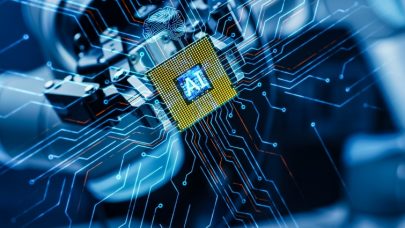Nov. 14, 2023 — The Department of Energy’s Office of Science has allocated supercomputer access to a record-breaking 75 computational science projects for 2024 through its Innovative and Novel Computational Impact on Theory and Experiment, or INCITE, program. DOE is awarding 60% of the available time on the leadership-class supercomputers at DOE’s Argonne and Oak Ridge National Laboratories to accelerate discovery and innovation.
 The projects will support a broad range of high-impact, computationally intensive research campaigns in a broad array of science, engineering and computer science domains.
The projects will support a broad range of high-impact, computationally intensive research campaigns in a broad array of science, engineering and computer science domains.
Jointly managed by the Argonne Leadership Computing Facility and the Oak Ridge Leadership Computing Facility, the INCITE program is the primary means by which the facilities fulfill their mission to advance open science by providing the scientific community with access to their powerful supercomputing resources. The ALCF and OLCF are DOE Office of Science user facilities.
The ALCF’s systems include the debut of Aurora, ALCF’s HPE Cray EX – Intel Exascale Compute Blade system, with a peak performance of over 2 exaflops. Additionally, ALCF is allocating Polaris, the 44-petaflop HPE Apollo 6500 Gen10+ system.
This year’s awards are the second INCITE allocations on Frontier, the OLCF’s flagship HPE Cray EX system, which debuted in May 2022 as the world’s fastest supercomputer. The system features a High Performance Linpack speed of 1.194 exaflops and a theoretical peak performance of 2 exaflops.
“These ambitious research campaigns are made possible by the power and scale of our leadership-class computing systems.” said ALCF Director Michael E. Papka. “DOE’s INCITE program helps researchers to push the boundaries of what’s computationally feasible to accelerate scientific discovery. As we fully transition into the exascale era, we are proud to say that INCITE can support the most ambitious, long-term research campaigns in the areas of data science, artificial intelligence and traditional modeling and simulation.”
Open to any researcher or research organization in the world with a computationally intensive project, INCITE’s application process is highly competitive. Over a four-month period, INCITE proposals are assessed by peer-review panels composed of international experts, with each panel representing a different scientific discipline. The proposals are also evaluated on a technical level by each computing facility for computational readiness and the scalability of the project’s code and algorithms. The INCITE awards committee makes its final selections based on these recommendations. This year, the committee received 108 total proposals with researchers requesting more than 103.5 million node-hours across all three systems. Additionally, the INCITE committee commits 10% of allocatable time to an early career track, meaning researchers within 10 years from earning their doctorate are able to apply. This year, 14 early career projects were awarded.
“INCITE 2024 will be our first full year of user access to Frontier, and we are excited to see the truly game-changing exascale-class projects our scientific users are bringing to us,” said Gina Tourassi, director of the National Center for Computational Sciences, which houses the OLCF. “I’m inspired by the range of scientific domains and breadth of approaches our researchers are carrying out with the Frontier system through INCITE, but also by the introduction of new investigators to our user community — both early career and first-time users.”
Highlights of the 2024 allocations include:
- Drummond Fielding of Cornell University received 700,000 node-hours on Frontier and 200,000 node-hours on Aurora to resolve cosmic ray transport by pushing the frontier of MHD turbulence.
- Amanda Randles of Duke University received 240,000 node-hours on Frontier and 60,000 node-hours on Aurora to establish digital twins for high throughput cellular analysis in whole blood.
- Mohammed AlQuraishi of Columbia University received 200,000 node-hours on Polaris to develop OpenFold-powered machine learning of protein-protein interactions and complexes.
- Vikram Mulligan of the Flatiron Institute received 375,000 node-hours on Aurora to harness new and emerging computing technologies through heteropolymer design.
- Richard Friesner of Columbia University received 700,000 node-hours on Frontier to establish a quantum Monte Carlo formalism as a needed benchmark method for transition metal chemistry.
- Silvia Crivelli of Lawrence Berkeley National Laboratory received 200,000 node-hours on Frontier to develop clinical foundation LLMs for scaling public health surveillance.
- Yehuda Ben-Zion of the University of Southern California received 700,000 node-hours on Frontier to advance the modeling of the interaction of seismic energy propagation with the built environment for better risk reduction.
- Abhinav Bhatele of the University of Maryland received 600,000 Frontier node-hours, 50,000 Aurora node-hours, and 100,000 Polaris node-hours to train emerging innovative neural network architectures at scale and make them openly available.
- Boris Kozinsky of Harvard University received 300,000 node-hours on Frontier, 50,000 node-hours on Aurora, and 100,000 node-hours on Polaris to advance understanding and design materials for the future energy infrastructure.
For details on all of the 2024 INCITE awardees, view the project fact sheets: https://www.doeleadershipcomputing.org/wp-content/uploads/2024INCITEFactSheets.pdf.
DOE’s Office of Science is the single largest supporter of basic research in the physical sciences in the United States and is working to address some of the most pressing challenges of our time. For more information, visit energy.gov/science.
Source: ORNL





























































